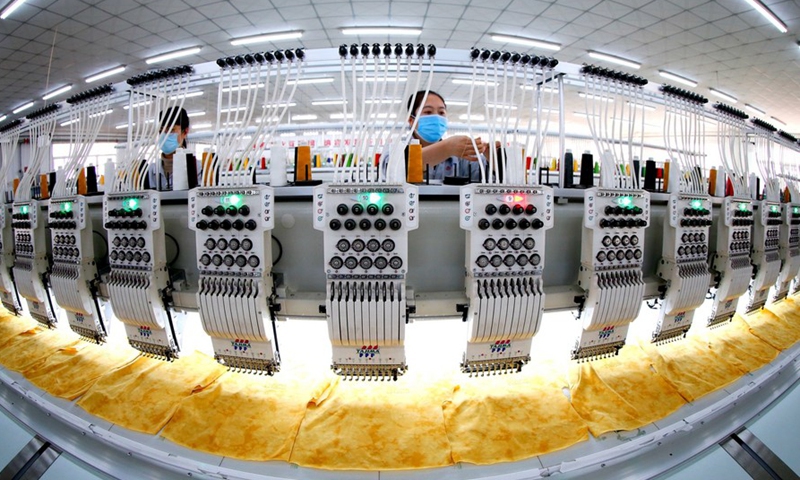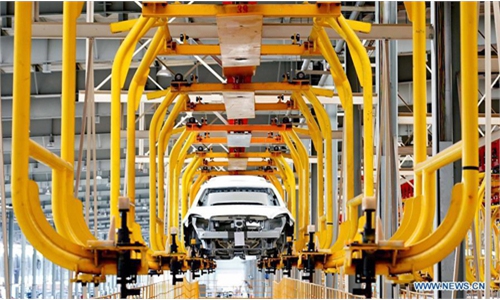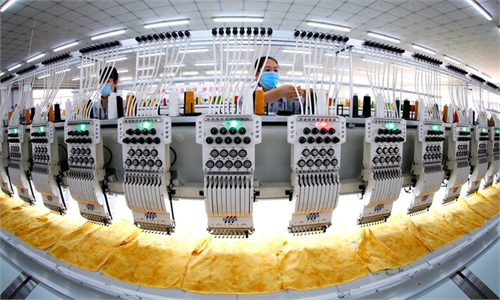China’s manufacturing PMI contracted in September, non-energy sectors post gain: NBS

Photo:Xinhua
China's manufacturing purchasing managers' index (PMI) unexpectedly contracted in September, the lowest point since February 2020 against the backdrop of the COVID-19 epidemic, while the non-manufacturing PMI climbed back to expansion territory with a reading of 53.2.
Analysts said soaring energy and raw material prices have weighed on industrial production, while sectors less dependent on energy is likely to post further gains in the coming months boosted by consumption activity during the National Day holidays.
Manufacturing PMI declined for the sixth consecutive month, reaching 49.6 in September, sliding 0.5 points from August and coming in 0.4 points below expectations, data from the National Bureau of Statistics (NBS) showed on Thursday.
The NBS attributed the low reading to weak growth in high-energy consumption sectors. Non-manufacturing PMI posted a sharp gain of 5.7 points from August with sectors such as railway and air transportation and postal and express deliveries posting strong gains.
High-energy consumption sectors of petroleum, coal and other fuel processing, chemical fibers and rubber, ferrous metallurgy posted a reading below 45, showing weakened supply-demand dynamics, said Zhao Qinghe, a senior analyst from the NBS.
Zhao said weakened demand is coupled with hiking prices in raw materials and factory gate price for products. Prices for upstream energy, fuels and minerals are running high, as are those for downstream ferrous metallurgical products.
High-energy consumption sectors aside, the NBS said 12 among 21 surveyed sectors were in expansion territory in September, compared to 10 in August. Also, the majority of manufacturing sectors have expanded since August.
High-tech manufacturing continued to post gain with a reading of 54, 0.3 points higher than August.
The sub-index for new orders slid 0.3 points into negative territory at 49.3, the lowest point of 2021, the NBS said.
Li Chang'an, a professor at the University of International Business and Economics' School of Public Administration, told the Global Times on Thursday that the weak reading showed the impact of soaring raw materials and energy prices had on the real economy.
The non-manufacturing PMI, from sectors less reliant on energy, was also shored up by the Mid-Autumn Festival toward the end of September, Li said.
However, analysts pointed out that with the latest outbreaks of COVID-19 being brought under effective control and the robust consumption expected during the upcoming holidays, China's economic recovery will remain solid in the coming months. Nationwide efforts to curb runaway raw material prices, if successful, could also ease the burden for China's industrial firms, analysts noted.
The Caixin manufacturing PMI for September, released on the same day, stood at 50, up 0.8 points from August and the second lowest point in 17 months.
Li predicted non-manufacturing PMI will continue to post gains in October.
Li warned that with the upcoming winter heating season, industrial production may face heightened downward pressure in the coming months as a power shortage limits the potential of manufacturing firms.




